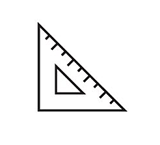하루살이유충(Mayfly Larvae)화석-060222 

| 국내/해외배송 | |
|---|---|
| 배송비 방법 | 택배 |
| 배송비 | 4,000원 (50,000원 이상 구매 시 무료) |
| 수량 |
|
| 상품 정보 | 가격 | 삭제 |
|---|---|---|
| [총 상품금액(수량)] 0 (0개) | ||
일반명 : 하루살이유충(Mayfly Larvae)
학명(Name) :
분류(division) : Class Insecta; Order Orthoptera; Family: Haglidae
지질시대(Geologic Age): 후기쥬라기(Late Jurassic 약 1억5천만년전)
지층명(Stratigraphic detail): 익시안층(Yiaxin Formation)
원산지(Location) : 중국 랴오닝 (Liaoning Province of China)
중국의 익시안층은 주로 무척추동물의 다양한 변화에 따른 Jehol Biota의 주요 3가지 특징중 2번째와 마지막 단계의 가지고 있다. 익시안층에는 오스트라코드류(작은갑각류)의 다양한 종류들이 발견되며, 특징적으로는 무척추동물인 조개새우와 곤충이 발견된다. 곤충으로는 중생대에서 가장 다양성을 보인다. 반면에 부족류와 복족류들은 몇몇 무척추동물군과 같이 소량이 발견된다.
척추동물로는 원시물고기화석인 리콥테라가 대량발견되며,기타 연골어류와 몇몇의 경골어류가 발견된다. 가장 큰 특징은 척추동물중 조류화석이 발견되는데 이것은 매우 중요한 발견이다.
이 지층에서는 다양한 식물들이 발견되는데, 특히 현화식물(꽂을 가지는 식물)5종은 현생종과도 아주 밀접한 종이다. 그중 쇄뜨기는 현생과 거의 유사함을 보인다. 익시안층은 은행,침엽수,소철,종자고사리등이 숲을이루고 있었다. 익시안층은 우리나라 태백만큼이나 중국에서는 매우 중요한 지층이다. 시대는 다르지만 그 다양성이나 중요도로보면 비슷하다는 말이다.
The Yixian Formation represents the second of three major faunal phases that characterize the Jehol Biota, mainly based on changes in invertebrate diversity. In the Yixian, ostracods (seed shrimp) had diversified considerably, despite a very low diversity in the earlier Dabeigou Formation. Other major invertebrate groups in the Yixian include clam shrimp and insects. Insects, as a group, experienced their largest diversification of the entire Mesozoic era in the Yixian. On the other hand, some invertebrate groups, such as bivalves and gastropods (snails and slugs), were numerous but low in diversity, being mainly represented by one or two dominant species (Arguniella in the case of the bivalves).
Studies of vertebrates have shown support for the division of the Jehol into phases, and the diversity of fish in the Yixian was distinct from older and younger formations, with Lycoptera as the dominant species. The Yixian preserves the first Jehol dinosaurs and pterosaurs (which have not been found in the older Dabeigou Formation), and the first major radiation of birds (only one bird species is known from the Dabeigou). The Yixian also preserves the largest (and only) mammal radiation so far known from the Jehol group. Most vertebrates showed a tendency to climb trees or become arboreal, including many tree-dwelling birds, and climbing mammals and lizards.
Plant life reached its Jehol biota peak in the Yixian. Five species of flowering plant were present (three of Archaefructus, one of Archaeamphora and one of Sinocarpus), as were a variety of horsetails that closely resembled modern species. It is possible that increasing animal and plant diversity were linked. The Yixian is characterized by extensive forests, dominated by trees such as ginkgoes, conifers, cycads, and seed fern trees. Ground cover plants included lycopods, horsetails, ferns, and primitive flowering plants, which were rare compared to the others.
This plant life grew around a series of freshwater lakes, provided with abundant minerals thanks to periodic volcanic eruptions. Volcanic activity, along with periodic wildfires, and noxious gasses released from the lake bottoms caused the ecosystem to be continually destroyed and regrown. This, along with the wide diversity of habitats in the surrounding region, may have contributed to the fast diversification of life forms present in the Yixian ecosystem

















 확대보기 및 상세정보
확대보기 및 상세정보